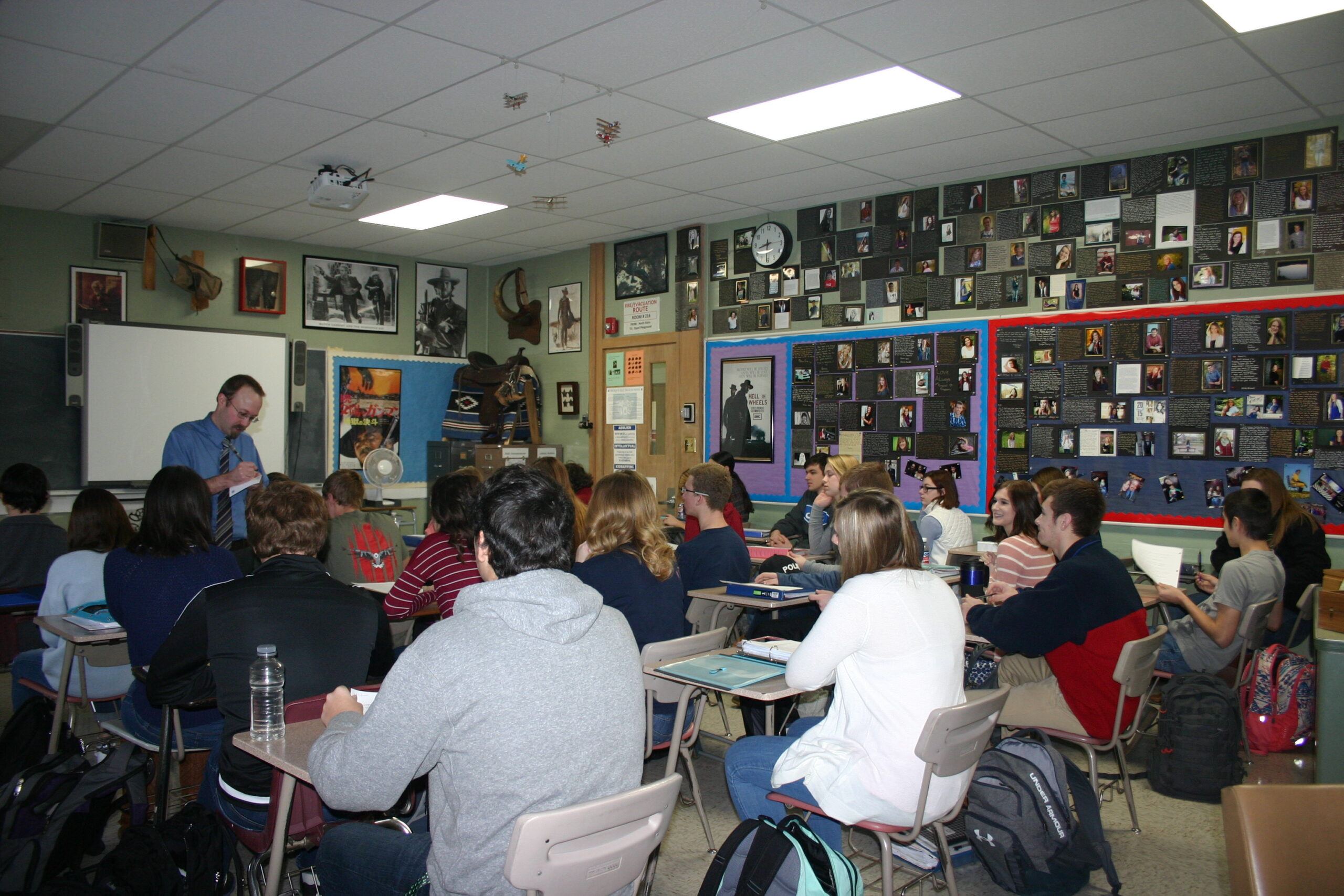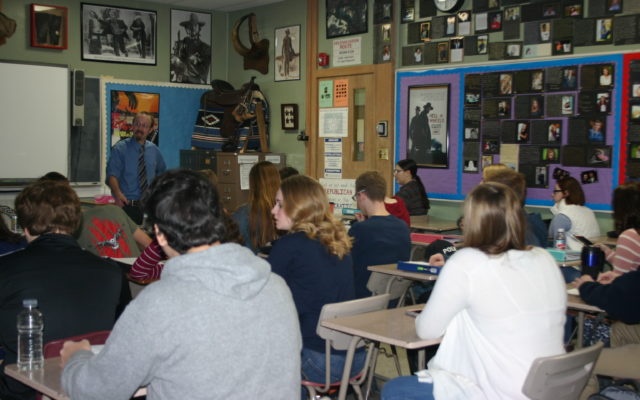
PRESQUE ISLE, Maine — Despite deep political divisions that have defined much of United States politics since the 2016 presidential election, local educators at both the high school and college level are more confident than ever in students’ abilities to learn about and accept various ideas and opinions.
Zachary Powers has taught social studies at Presque Isle High School for 17 years, serving as chair of that department for five years. On his classroom door, a poster covers the space with a quote from former president John F. Kennedy: “Let us not seek the Republican answer or the Democratic answer, but the right answer.” Powers said that he embraced that teaching philosophy long before the current conflicts between the two political parties.
“What probably sounds most surprising is that the last election didn’t really change anything about my classes or those of my colleagues,” Powers said. “For us it has always been about teaching students how to think about certain issues in their own way instead of telling them what to think.”
One of the ways in which Powers has tried to engage students with current social issues is through a debate project with his sophomore-level civics course. Students spend two weeks researching both sides of an issue but do not find out which side they’ll debate from until they do a coin toss.
Powers is not teaching civics this year, but noted that when students have taken the course in the past they have learned great lessons about understanding the opposing side of an issue even if they ultimately don’t agree.
“I don’t kid myself into thinking I could change their minds because the debate isn’t about changing anyone’s mind,” Powers said. “It’s about students recognizing the position on the other side and coming up with their own conclusions.”
Throughout his career, Powers has never told student what his political leanings are or how he has voted in state and national elections. He has done so in part to show students that once they bring personal feelings into their argument, their audience members will lose interest. He wants students to know that regardless of their opinion they can use academic research to make clear why their opinion is valid.
“My wife teaches English here and I don’t even tell her who I voted for. I try to teach in a way that makes half the students think I’m liberal and the other half think I’m conservative,” Powers said. “I’m more concerned with presenting ideas from both sides of the aisle and helping students find legitimate ways to back up their opinions.
At the University of Maine at Presque Isle, Professor of History John Zaborney teaches U.S. history and government. Though his classes do not solely focus on politics, current events have come up when his government students choose a topic to research and present on every semester. He said that during his 20 years of teaching he has never seen students who did not want to listen to one another’s viewpoints even during times of political divisions in the country.
“In the years that I’ve taught I’ve always seen students be respectful of each others’ presentations,” Zaborney said. “I’ve never seen anyone who didn’t want to listen to what the other person had to said because they didn’t agree.”
Zaborney has often used examples of two differing viewpoints even when teaching students about past conflicts. During the Great Depression, he said, one political party advocated for more government involvement in the economy while the other wanted the government to be less involved.
Such examples convince Zaborney that students need to hear multiple sides of an issue in order to understand its place in history whether that history takes place today or in the past.
“I think it’s the fact that UMPI includes listening and respecting others’ viewpoints as part of their mission statement,” Zaborney said, on why he thinks no major student disagreements have come up in his classes. “That’s the way it’s always been here because we want all students to feel welcome.”
- Social studies teacher Zachary Powers takes attendance during his Advanced Placement U.S. History class at Presque Isle High School on Thursday, February 1. Powers said that even before political divisions in the country had reached new heights, he has always shaped coursework around helping students articulate and value multiple viewpoints. (Melissa Lizotte)








